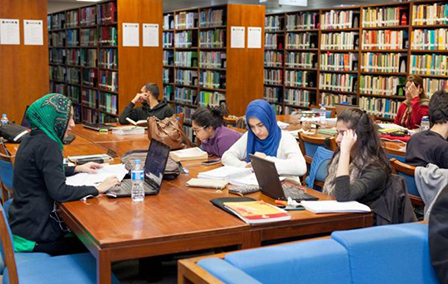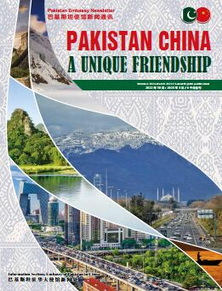

Pakistan Study Centers

Confucius Institute in Pakistan

Advisory for Students

Embassy College

Embassy of Pakistan Newsletter
News & Events
Federal Planning Minister Ahsan Iqbal Meets CCIEE CEO in China
September 27,2016
Pakistan's Planning Minister Ahsan Iqbal meets CCIEE CEO Zhang Xiaoqiang, explores prospects of diversifying CPEC cooperation.
The Federal Minister for Planning, Development and Reform Prof. Ahsan Iqbal met with China Center for International Economic Exchanges (CCIEE) Executive Vice Chairman and Chief Executive Officer and former Vice Chairman of the National Development and Reform Commission of China Zhang Xiaoqiang today isn Beijing.
The Minister discused opportunities of cooperation with CCIEE and explored the ways and means to further extend the magnitude and scope of the China-Pakistan Economic Corridor.
Both sides expressed satisfaction over the progress on CPEC and hoped to create new platforms for diversifying cooperation in areas of knowledge sharing and governance issues of public policy.
Appreciating the significance of CPEC, Zhang said that CPEC's progression was faster than any of the other corridors. He also pointed out that CPEC aimed at peaceful development and provision of benefits to all the people and connected developing and developed countries to jointly revive economy as well as enhance cooperation in research and policy. CPEC is a project of friendship, openness and inclusiveness and is not targeted against any country, he added.
Planning Minister Ansan Iqbal appreciated the services rendered by Mr Zhang Xiaoqiang as Vice Chairman of the National Development and Reform Commission of China and first co-chair of CPEC Joint Coordination Committee (JCC) in preparing a roadmap for speedy progress of CPEC projects and said that CPEC was about openness, inclusiveness and prosperity and the corridor provided an opportunity to neighboring countries do trade with China in a very economical way. He said that under CPEC, Pakistan was doing many projects with China in its hardware component comprising energy and infrastructure however, there was a need to create platforms for the software component such as knowledge sharing.
The Minister said that Pakistan was a fast urbanizing country, and Pakistan could learn from Chinese experience and practices in managing urbanization and concomitant challenges. He emphasized the need to create joint platforms and workshops for urban planning, housing, rural development to address the challenges posed to the country's large rural economy. He also sought Chinese expertise and assistance in the areas of water resources management, improvement of Small and Medium enterprises (SMEs) sector, and hoped to organize a joint mechanism whereby experts from China could share their experiences with the Pakistani side.
The CCIEE CEO shared the view that apart from hardware cooperation in energy and infrastructure, software cooperation was also very important. He said that China had experienced many cooperative initiatives with other countries in city planning and establishment industrial parks. He said that on the lines of other joint working groups, establishment of contact groups of local government, think tanks, universities, to interact on urban planning solutions and share ideas on other software side of CPEC in consultation with National Development and Reform Commission of China could be explored. He said that China's success in development was made possible due to a healthy combination of stability, development and reform.
Minister Planning said that Pakistan Institute of Development Economics (PIDE) and CCIEE could develop strong linkages. PIDE has set up a Center of Excellence on CPEC. The theme of the PIDE annual conference to be held in December is the China-Pakistan Economic Corridor. The Minister extended invitation to the CEO of CCIEE to attend the conference.


.jpg)
.jpg)
.jpg)
.jpg)
.jpg)
.jpg)
.jpg)







